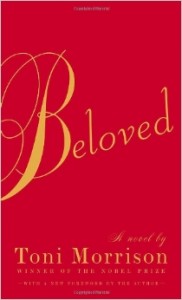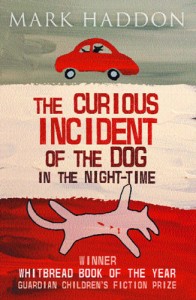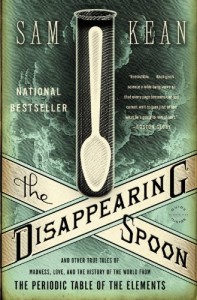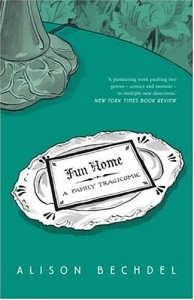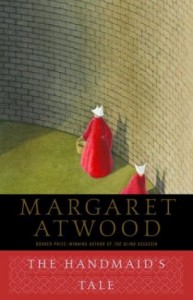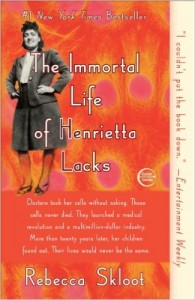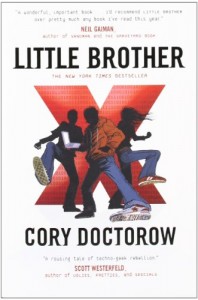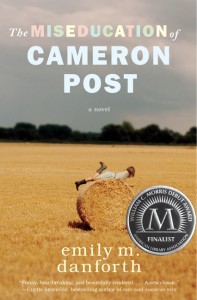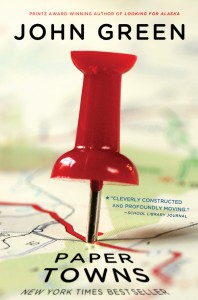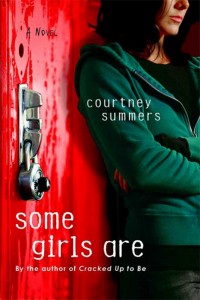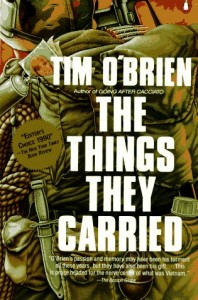In the past two years, we’ve seen a veritable explosion of challenges and bans to books assigned as summer reading in middle school, high school, and even college. Moreover, in many cases school districts or administrators seem unsure as to whether summer reading books constitute a part of the curriculum and thus receive the same consideration as any other book under challenge policies. (That would be a resounding YES.)
Below are the summer reading books challenged or banned over the last couple of years, several of which CBLDF helped defend. Go ahead and use it to make yourself a primo autumn reading list!
1. Beloved by Toni Morrison
In early September, a unanimous review committee vote kept Toni Morrison’s Pulitzer Prize-winning novel Beloved on a high school summer reading list in Satellite Beach, Florida despite a parent’s complaint over what he called the “porn content” of the novel. Teachers, administrators, and parents voiced their support for the book at the committee meeting, with several urging Boone to read the entire work rather than just selected passages from it. Boone is expected to appeal the decision.
2. The Curious Incident of the Dog in the Night-Time by Mark Haddon
In early August, CBLDF joined a coalition led by the Kids’ Right to Read Project to protest the actions taken at Lincoln High School in Leon County, Florida, where Principal Allen Burch violated school policy by bypassing committee review to pull The Curious Incident of the Dog in the Night-Time from the school’s summer reading program.
Although the award-winning book has received critical acclaim, some parents in the community sent complaints about profanity and “religious skepticism” in the book to Principal Burch, who then made the ad hoc decision to simply pull the book from the school’s summer reading list without consulting a review committee per policy. His reason: He wanted to “give the opportunity for the parents to parent.”
Despite protest, the school board stood behind Burch’s decision. “Parents’ concerns come first. That is what we do best — listen to parents’ concerns and adjust as needed,” said Alva Striplin, a member of the school board who has openly protested the book’s inclusion on the district’s required reading list. “It is solely the language of the book that is the problem.”
3. The Disappearing Spoon by Sam Kean
The mother of an 8th grade student in Orlando, Florida, said that the nonfiction book about the periodic table of elements contains “some content that’s rather questionable for a 12- and 13-year-old reader.” In particular, she cited the comparison of potassium to “a cocaine-like rush,” rhodium to “coitus,” and the noble gases to “Plato’s writing on love and the erotic.” Orange County Public Schools officials arranged a meeting with the mother last Friday, but said they would continue to support teachers’ selection of the book.
4. Fun Home by Alison Bechdel
Some incoming freshmen at Duke University publicly opted out of reading their all-class summer reading book, Alison Bechdel’s Fun Home, because of “graphic visual depictions of sexuality.” Students were free to make that choice, as the reading was completely optional, but one student said the book should not have been selected at all and “it was like Duke didn’t know we [Christian students] existed, which surprises me.” In fact, members of the selection committee acknowledged when the book selection was announced in April that it was likely to be controversial with some students, parents, and alumni. History professor Simon Partner said in the press release on Duke’s website that the committee hoped Fun Home would “stimulate interesting and useful discussion about what it means, as a young adult, to take a position on a controversial topic.”
Notably, Fun Home was also selected as an optional summer reading assignment in a similar program for incoming freshmen at the College of Charleston in South Carolina. In 2014, the state legislature debated punitive budget cuts against the college for the use of Fun Home, and the proposed state budget would have cut CofC’s funding by $52,000, the exact amount used for the program. CBLDF joined a coalition protesting the funding cuts, and the legislature came up with a “compromise”: Instead of cutting the funds, they proposed a budget provision that doesn’t cut funding but — in a an act of irony so classic that it should be included in the dictionary — the provision reallocated the funds to books that teach about the Constitution.
5. The Handmaid’s Tale by Margaret Atwood
When The Handmaid’s Tale was challenged in Pennsylvania’s Ringgold School District, the school board initially followed a familiar pattern of ignoring its challenge policy and banning the book. When a teacher suggested that the board at least read the book before banning it, one member responded that “I don’t read Penthouse and I won’t read this.” The board later reconsidered its hasty action, however, and voted to reinstate The Handmaid’s Tale as a summer reading book.
6. The Immortal Life of Henrietta Lacks by Rebecca Skloot
Upset over the graphic nature of a passage in the nonfiction book The Immortal Life of Henrietta Lacks, a parent in Knoxville, Tennessee, took her complaint to the district level and attempted to have the book removed from all county schools. The mother of a sophomore at a magnet school for the STEM fields said that a passage where Lacks discovered her cervical cancer with a self-exam was “pornographic.” L&N STEM Academy vice principal Jimm Allen personally contacted author Rebecca Skloot to assure her “that the book and teachers have the complete support from the administration of the school. It’s an amazing book that fits with our STEM curriculum better than almost any book could. The next book that the sophomores are reading? Fahrenheit 451… Oh, sweet, sweet, irony.” The parent’s challenge is still pending.
7. Little Brother by Cory Doctorow
In early June 2014, a Pensacola principal cancelled an entire One Book/One School summer reading program because Cory Doctorow’s Little Brother contained “language” and “overtures.” In communication with Mary Kate Griffith, the teacher who had arranged the program, Doctorow heard that the principal also objected to “the book’s positive view of questioning authority [and] lauding ‘hacker culture.’” The author arranged for his publisher to send 200 free copies of the book to the school for any students who wanted to read it on their own. Escambia County School District’s superintendent later admitted that a challenge policy was ignored, but the principal faced no consequences for his actions. Instead Griffith, the teacher, faced misconduct charges that could have resulted in the loss of her job, although she was finally exonerated in August 2014 and received a personal apology from the superintendent.
8. The Miseducation of Cameron Post by emily m. danforth
For sheer disorganization and confusion over summer reading assignments in 2014, Delaware’s Cape Henlopen School Board took the cake. In response to a parental challenge of emily m. danforth’s The Miseducation of Cameron Post, the board initially removed the book (without following challenge policy) as an option on a summer reading list that included nine other titles. Board members claimed that they found the book inappropriate only because of profanity, not because the teenaged protagonist is a lesbian. But when nationwide free speech and LGBT advocates banded together and pointed out that some of the other books on the list also contain profanity, the board agreed and eliminated the entire list rather than reinstate the book.
This was disappointing to say the least, but CBLDF and other member organizations of the National Coalition Against Censorship took the opportunity to sponsor an essay contest, giving Delaware high school students a chance to tell the Cape Henlopen board members what they should have known about Cameron Post before they banished it from summer reading.
9. Paper Towns by John Green
Another of our 2014 summer reading cases also came out of Florida, namely the Tampa-area Pasco County School District. This time, it was someone in the district’s central office who quietly removed John Green’s Paper Towns from a summer reading list after a parent complained of references to teen sex and masturbation, calling the book “soft porn.” Although the school district has a detailed policy on book challenges, it was not followed in this case, and the superintendent later said there was some confusion as to “whether the full review process that is outlined in Board policy should be put into action.”
10. Speak by Laurie Halse Anderson
One positive outcome arose in the small town of Albertville, Alabama, where the high school principal calmly rejected a challenge to Laurie Halse Anderson’s Speak by pointing out that it was one of many options on a pre-AP English and Language Arts reading list and students were free to choose a different book. The local newspaper applauded his position, editorializing that “parents do have the right to monitor what their own children read but that right does not extend to children not their own. To allow a select few parents to ban books for all AHS students would be a terrible mistake.”
11. Some Girls Are by Courtney Summers
Based on a complaint from one parent, the principal of West Ashley High School in Charleston, South Carolina removed Courtney Summers’ novel Some Girls Are as an option on a summer reading list for freshman Honors English.
Charleston County School District’s challenge policy says that the school board should make the final decision “based upon careful examination and study of the challenged material,” but WAHS principal Lee Runyon pulled the book because “we felt like we needed to try to accommodate the parent’s concerns, which had some validity, and make a common-sense decision.” CBLDF and other members of the National Coalition Against Censorship sent the district a letter protesting the removal. After Runyon pulled the book, he consulted with district English teachers and replaced it with Laurie Halse Anderson’s Speak — which explores themes similar to Some Girls Are and is another frequently challenged book.
Runyon’s decision may have let one parent decide for all of the students in the system, but the move didn’t really keep the book away from students: Former librarian Kelly Jensen led a drive that collected 830 copies of the novel for distribution to students in South Carolina. The books were made available to teens free of charge in several libraries, including two in direct proximity to West Ashley High School.
12. The Things They Carried by Tim O’Brien
The mother of an AP English student in Troup, Texas, complained that Tim O’Brien’s collection of short stories about the Vietnam War is “complete garbage, trash” and that it contains “nothing…that will benefit [students] physically, emotionally — mentally, morally, spiritually to be used as an educational tool.” Contacted by a local news station, Troup ISD superintendent Stuart Bird said that “going forward, all questionable content will be disclosed with parents before students are required to read a book.” The mother also plans to take her complaint to the state’s University Interscholastic League, which included the book on the 2015-2016 reading list for its literary criticism contest.
—
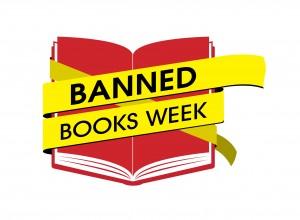 If you are planning a Banned Books Week event or display, it’s not too late to let us know about it! We’ll update this calendar of events throughout the week. Send the info about your event to betsy.gomez@cbldf.org!
If you are planning a Banned Books Week event or display, it’s not too late to let us know about it! We’ll update this calendar of events throughout the week. Send the info about your event to betsy.gomez@cbldf.org!
As you’re planning your events or developing your library and classroom curricula, be sure to check out these other valuable CBLDF resources:
- CBLDF Banned Books Week Handbook
- CBLDF Posters and Shelf Talkers
- CBLDF Comics Connector
- CBLDF Banned Books Week Gear Bundle
- 12 Challenged & Banned YA Graphic Novels for Banned Books Week 2015
- 28 Challenged and Banned Comics to Read During Banned Books Week 2015!
- Raising A Reader: How Comics & Graphic Novels Can Help Your Kids Love to Read!
- Using Graphic Novels in Education
- Adding Graphic Novels to Your Library or Classroom Collection
- CBLDF Discussion Guides
- CBLDF Banned Comics Case Studies
- Comic Book Club Handbook
- CBLDF Presents: Manga
- Working With Libraries: A Handbook For Comics Creators
Banned Books Week is sponsored by the American Booksellers Association, American Booksellers for Free Expression, American Library Association, American Society of Journalists and Authors, Association of American Publishers, Comic Book Legal Defense Fund, Freedom to Read Foundation, National Association of College Stores, National Coalition Against Censorship, National Council of Teachers of English, PEN American Center, People for the American Way Foundation, and Project Censored.
Help support CBLDF’s important First Amendment work in 2015 by visiting the Rewards Zone, making a donation, or becoming a member of CBLDF!
